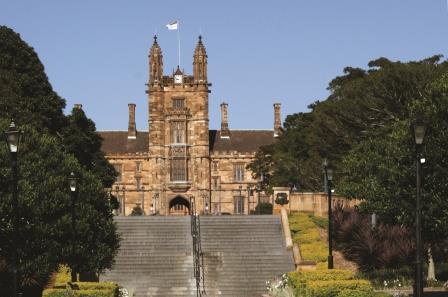Sydney Engineering researchers study recycling to benefit agriculture
Urine could be successfully recycled to fertilise crops according to University of Sydney civil engineering researchers who have examined the effectiveness of reusing nutrients from the human waste.

Dr Federico Maggi, senior lecturer in the Sydney School of Civil Engineering and expert in environmental modelling says there is growing evidence that the use of human urine in agriculture is completely viable.
“Our preliminary results indicate that human urine can be effectively used extensively in agriculture to reduce the production and use of mineral commercial fertilisers.
“It contains the highest levels of nutrients among all the human excreta and yields considerable amounts of nitrogen, phosphorus and potassium. These are the most essential nutrients for the growth of plants, and substantially all micronutrients plants need for healthy growth,” the Sydney Engineering lecturer explained.
The researchers believe the model they have developed could be used to increase the effectiveness of urine fertilisation as well as crop yield, substantially lowering costs in terms of supplied nutrient.
Fiona Tang Ph.D. candidate, who studied the use of urine during her Bachelor of Civil Engineering degree, explains: “In human urine we have complex compounds that can be broken down into simpler molecules that plants and crops actually want to take up as their food source. Soybean, cabbage, cauliflower for example flourish with it.”
As part of her undergraduate studies Fiona conducted a survey investigating attitudes towards the use of human urine as a substitution to mineral fertiliser. She found there was a high acceptance level to its application in agriculture.
“Human waste has been used as organic fertiliser since ancient times. Its use in agriculture is still commonly practiced in many areas around the world, including parts of Southeast Asia and Africa,” Fiona says.
“Over seventy percent of the respondents in the survey were very positive towards the idea of applying human urine in agriculture and were willing to buy and consume crops grown by urine-based fertiliser,” she says.
Fiona says that unless we find alternatives to phosphorus or a similar mineral the world will potentially run out of these natural resources.
“Extensive reliance on mineral fertilizer is consuming copious amounts of fossil energy and mineral resources. Phosphorus, especially, is depleting and some studies have revealed the reserves of phosphate rock that are economically exploitable will only last for about a hundred years at current extraction rates. Recycling nutrients from human urine is a promising solution to the depletion of mineral resources,” Fiona said.
Taking the concept forward the researchers say it would be possible to design a toilet system that separates human waste at the point of deposit.
“Years ago society baulked at the idea of separating their household waste into recyclable and non-recyclable bins, now in Australia it is second nature,” states Dr Maggi.
University of Sydney School of Civil Engineering
The Sydney School of Civil Engineering offers students a well-rounded understanding of the discipline, combined with the much sought-after design, research and problem-solving skills needed to help create and manage sustainable built and natural environments.
Civil engineering is behind many aspects of everyday life we take for granted. It incorporates the intricate behind-the-scenes planning and design, and the construction, maintenance and all-important recycling of community facilities and infrastructures all over the world. It’s why our high-rise buildings, roads, bridges, railways, power stations, airports, dams and harbours are safe, efficient and easy to use.
The University of Sydney is the top ranked Australian university and 15th in the world for civil engineering and their leadership is reflected in the outcomes of teaching and research, and leading alumni.
Master of Engineering (Civil Engineering)
A postgraduate specialisation in civil engineering will teach you about planning, designing and testing structures within the built environment. It is concerned with all types of infrastructures including dams, bridges, pipelines, roads, towers and buildings. You may engage in areas of study including steel/concrete structures, environmental geotechnics, advanced water resources management and numerical methods in engineering.
Program: Master of Engineering (Civil Engineering)
Location: Sydney, New South Wales
Duration: 1.5 years
Semester intakes: March and July
Application deadline: January 31, 2015 for the March 2015 intake; however, applicants are strongly encouraged to apply a minimum of three months in advance of the program start date.
Apply to the Sydney Engineering School!
*

































Ask A Question
Ask us about your program of interest, or if you have a question about our services.
CONTACT US TODAY